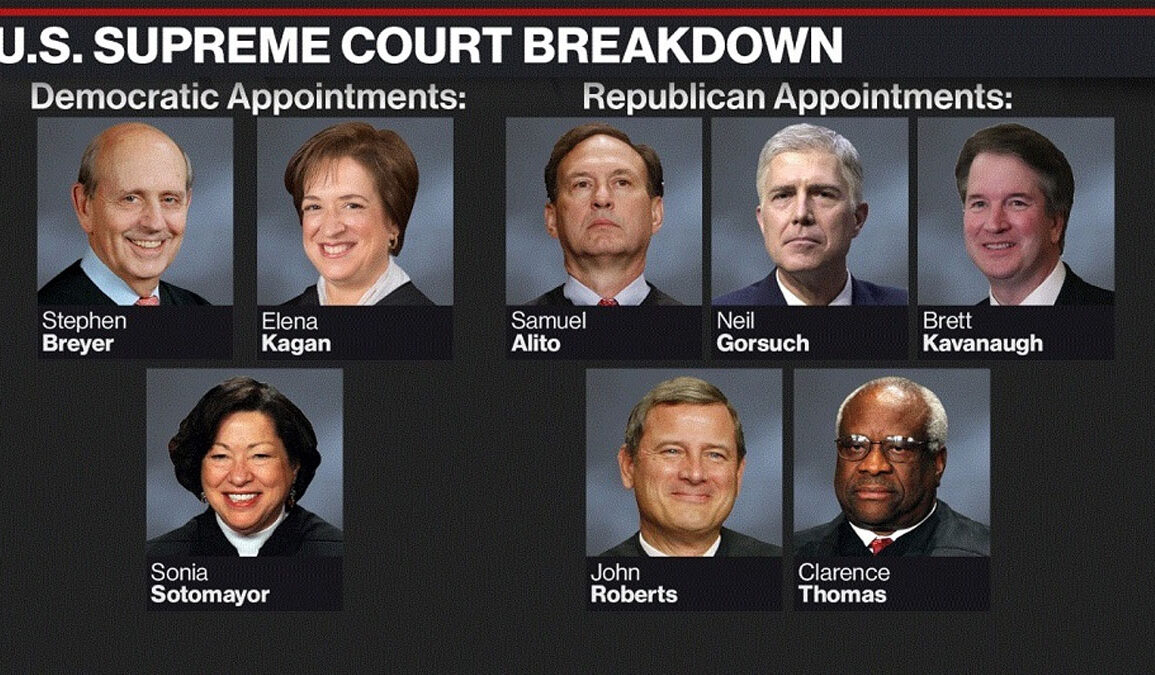The Supreme Court has delivered a historic decision that strips lower courts of their power to impose nationwide injunctions against presidential policies. This ruling, triggered by legal battles over Donald Trump’s attempt to end birthright citizenship, will transform how federal courts interact with the White House and marks a significant shift in the balance of power between the branches of government.
What the Court Ruled
In a 6-3 decision split along ideological lines, the justices declared that federal district courts do not have the authority to issue injunctions that apply beyond the plaintiffs in a given case. Justice Amy Coney Barrett, writing for the majority, stated that these sweeping orders “likely exceed the equitable authority that Congress has granted to federal courts.”
Barrett emphasized that injunctions should only provide relief necessary for the people actually suing, not the entire nation. She wrote, “Complete relief is not synonymous with universal relief,” dismissing arguments that nationwide injunctions were essential to stop unlawful policies. The ruling directs lower courts to scale back any injunctions already in place, including those blocking Trump’s birthright citizenship executive order.
The Case Behind the Ruling
The decision arose from multiple lawsuits challenging Trump’s executive order, which declared that children born in the U.S. to noncitizen parents would no longer automatically receive citizenship. Three district courts ruled that the order was likely unconstitutional and issued nationwide injunctions preventing it from taking effect. When the appellate courts refused to lift these orders, the Trump administration took the fight to the Supreme Court.
But instead of deciding whether Trump’s policy violated the 14th Amendment, the high court zeroed in on the question of whether a single judge should have the power to block federal policies coast to coast.
Jackson’s Controversial Dissent
Justice Ketanji Brown Jackson issued a forceful dissent that has already stirred heated debate among legal scholars. She accused the majority of unleashing an “existential threat to the rule of law” by denying courts the tools to fully stop the government from carrying out potentially unconstitutional actions. Jackson argued that courts must “have the power to order everyone (including the Executive) to follow the law—full stop.”
Justice Sonia Sotomayor also condemned the decision, warning it would create a “travesty for the rule of law” and force countless individuals to file their own lawsuits or join cumbersome class actions. “That holding renders constitutional guarantees meaningful in name only for any individuals who are not parties to a lawsuit,” she wrote.
Justice Barrett responded bluntly, accusing Jackson of embracing an “imperial Judiciary” and using rhetoric that was “at odds with more than two centuries’ worth of precedent.”
Impact on National Policy and the Courts
The ruling represents a decisive rollback of a tool that presidents from both parties have found frustrating but which has increasingly been used to stall Trump’s sweeping policy moves. Under this new framework, legal challenges will become more fragmented, requiring either state-specific lawsuits or the formation of certified class actions to achieve similar broad relief.
Legal experts say this could create a patchwork of conflicting rulings. Amanda Frost, a law professor at the University of Virginia, explained, “You could end up with a situation where a child is recognized as a citizen in New Jersey but not in Alabama.” While class actions remain an option, Frost warned that they are time-consuming, expensive, and more limited in scope.
Samuel Bray, a Notre Dame law professor, called the decision a return to “historical norms,” arguing that nationwide injunctions were “a recent innovation that took off over the last decade” and undermined the separation of powers.
Trump and Allies Celebrate
Trump wasted no time in celebrating what he called a “monumental victory for the Constitution.” Speaking at the White House, he said, “Thanks to this decision, we can now properly proceed with numerous policies that have been wrongly enjoined nationwide.” Trump and his supporters have long accused federal judges of using injunctions to sabotage his agenda.
His advisers see the ruling as a crucial step toward unclogging a backlog of executive actions tied up in litigation, from immigration enforcement to regulations on universities and social policies. “This really brings back the Constitution,” Trump declared. “This is what it’s all about.”
Democrats Decry the Outcome
Democratic officials and immigrant-rights groups condemned the decision. New Jersey Attorney General Matthew Platkin vowed to keep fighting Trump’s birthright citizenship plan, saying, “We are confident this executive order will never go into effect.” CASA, one of the lead plaintiffs, called the ruling an effort to “normalize the stripping of constitutional rights.”
Justice Sotomayor predicted chaos for the legal system, saying the court had handed the administration a roadmap to dodge accountability. “Rather than stand firm, the court gives way,” she said.
Beyond the immediate impact on birthright citizenship, this ruling effectively removes one of the most powerful legal tools Democrats and progressive advocates have used to block Trump’s policies. No longer can a single federal judge freeze an entire national agenda with a single stroke of the pen. Instead, future challenges will require broader coalitions of plaintiffs and more complex legal strategies to achieve the same effect.
NP Editor: While we are not on the same page with Trump over birthright citizenship, we applaud the ruling that stops random, partison, low level judges from making policy for the entire country.








